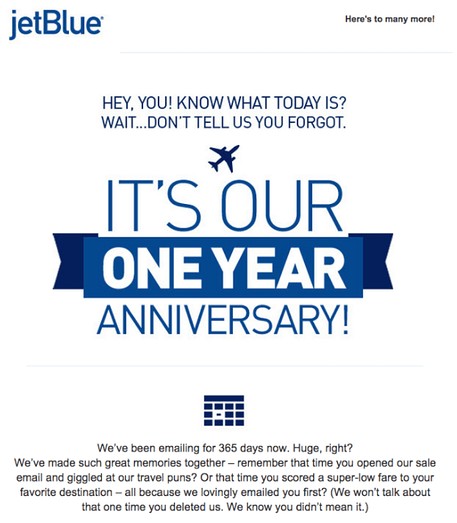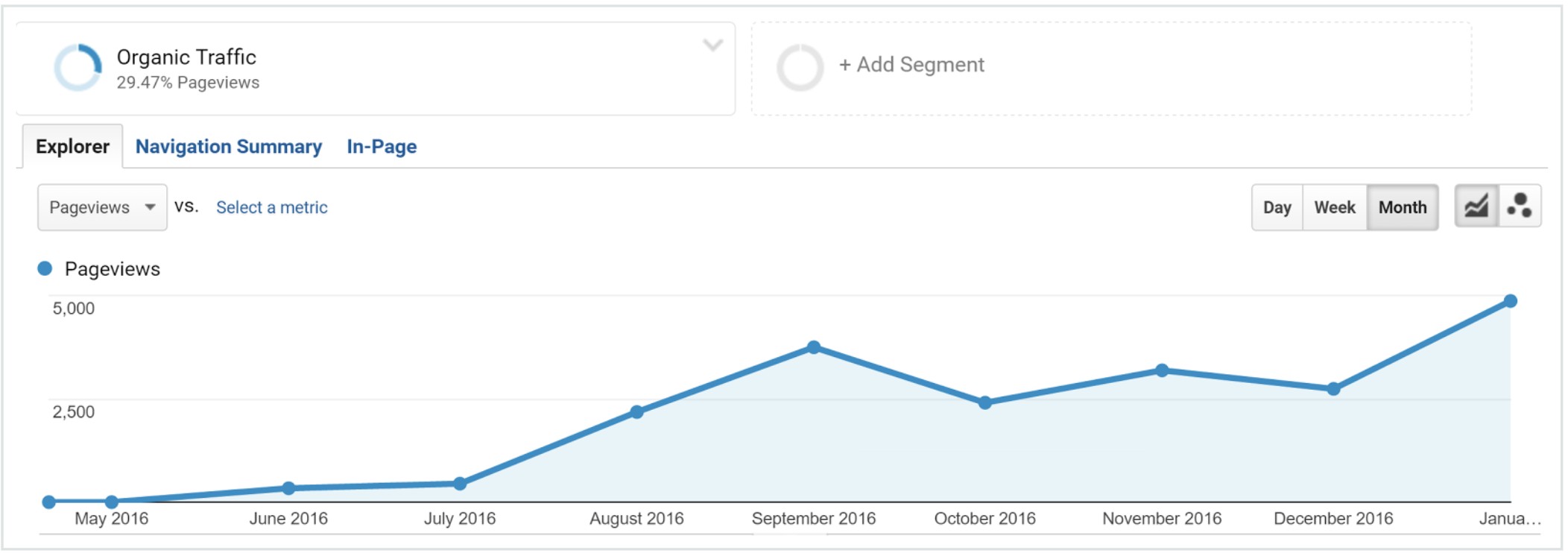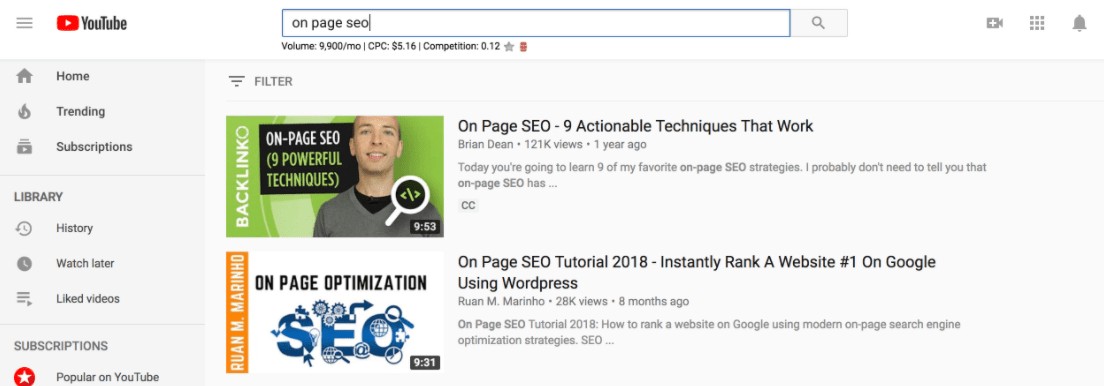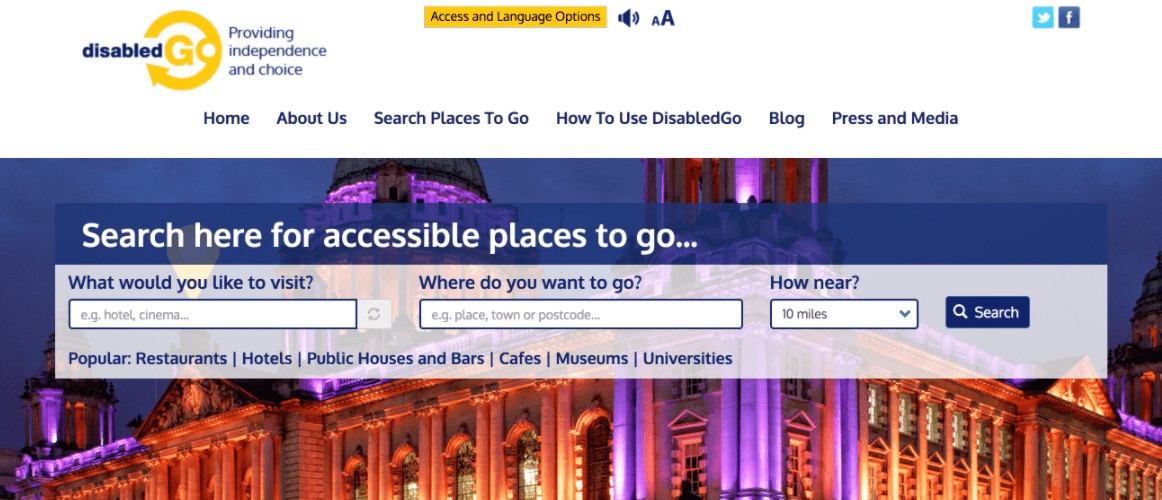Internet use is increasing worldwide every day — in fact, over 4.6 billion people around the world use the internet, as of 2021.
Marketing is, and always has been, about reaching customers where they are. TV commercials, print advertisements, and billboards all attempt to do just that.
The internet offers unique benefits other marketing mediums can't offer — scope of reach, the option to personalize content, and the opportunity to build far-reaching relationships with customers, being just a few.
But the internet can be an overwhelming and all-encompassing entity, filled with videos and recipes and news articles and e-commerce sites. In the crowded space of the internet, how are you supposed to differentiate your business to reach the right audience?
The answer is internet marketing.
Internet marketing leverages digital channels, including email, social media, websites, and search engines, to reach your ideal audience. Unlike more traditional advertising mediums, such as print, the internet encourages two-way conversations between your business and your customer, ideally creating better long-term customer retention.
There's no avoiding it: internet marketing is critical for the success of your business in 2021 and beyond.
But with all the gimmicks and tricks, it can be difficult to distinguish short-term wins from effective long-term strategies, which is why we've created an ultimate guide. Here, we'll cover everything from marketing strategies to real-world examples, to ensure your business reaches the right people out of that four billion.
What is Internet/Online Marketing?
Online marketing, also known as internet marketing or web advertising, is a form of marketing that uses the internet to deliver promotional messages to customers through digital channels such as search engines, email, websites, and social media.
Online marketing strategies include web design, SEO, email, social media, PPC, and other internet-related methods.
What's the role of internet marketing?
Simply put, the role of internet marketing is to help your business reach, attract, and convert online audiences.
Let's dive into two separate goals you'll have with internet marketing, as well as the necessary methods you'll want to take to achieve those goals.
Internet Marketing to Attract New Customers
You can use online marketing strategies to attract new customers. To do this, you'll want to focus primarily on paid social media ads, search engines, and web design.
For instance, you might use Facebook's Lookalike Audiences to get your message in front of an audience similar to your core demographic. Or, you could pay a social media influencer to share images of your products to her already well-established community. Paid social media can attract new customers to your brand or product, but you'll want to conduct market research and A/B testing before investing too much in one social media channel.
To attract new customers, you also need to maintain a powerful SEO presence. With 89% of B2B buyers and 81% of shoppers using the internet for research before making purchasing decisions, it's imperative your business is at the forefront of search for related keywords.
Having a strong SEO presence also translates to more in-store purchases, as well — in fact, 78% of local mobile searches result in an offline purchase, and local searches lead half of all mobile users to visit stores within one day.
Finally, it's critical you spend time and resources on your business's website design. When these aforementioned customers find your website, they'll likely feel deterred from trusting your brand and purchasing your product if they find your site confusing or unhelpful. For this reason, it's important you take the time to create a user-friendly (and mobile-friendly) website.
Internet Marketing to Cultivate Brand Loyalists
Internet marketing is for more than just attracting new customers — it's also critical for maintaining a loyal, long-term customer base. And, since it costs five times more to attract a new customer than it does to keep an existing one, this is an equally important goal.
You'll want to use email, blogging, and social media tactics to increase brand awareness, cultivate a strong online community, and retain customer loyalty. Consider sending personalized emails to past customers to impress or inspire them — for instance, you might send discounts based off what they've previously purchased, wish them a happy birthday, or remind them of upcoming events.
To properly employ email campaigns, you'll need an email list. Here's how to build an email list from scratch.
Additionally, you might use social media to showcase your brand's personality and hear directly from your customers. Consider hosting a Twitter chat, posting surveys on Instagram, or creating fun contests on Facebook.
If you don't feel like you have the bandwidth to create all social media content internally, consider using a third-party service like UpContent, which sends you compelling, curated content that you can share with your audiences for increased engagement.
Internet Marketing vs. Content Marketing
Content marketing and internet marketing are incredibly similar strategies used to attract leads and prospects to your site, and ultimately convert web traffic into customers. However, there are a few slight differences between the two.
Content marketing lives under the roof of online/internet marketing — which means online/internet marketing is the more broad, overarching strategy, and content marketing is one process within that strategy.
Content marketing applies only to the process of creating and distributing content to reach audiences. Online marketing, on the other hand, encompasses sharing that content through email, search engines, and social media — it also includes paid advertising, retargeting, and a wide range of strategies you might use to reach audiences online.
While most of the strategies that fall under online marketing have to do with content creation, online marketing also pertains to the non-content creation tasks of internet marketing: such as PPC bidding, or website design.
There are 11 strategies you'll want to employ to ensure you're successful at internet marketing.
1. Design a User-friendly Website
First, you want to create a user-friendly, and mobile-friendly, website. The design of your site will showcase your brand's personality and differentiate your business from every other online business. But it's more than just looking good — a cleaner, more well-organized site structure can affect how you rank in the SERPS.
For help designing your website or ensuring it's up-to-par, check out 8 Guidelines for Exceptional Web Design, Usability, and User Experience.
2. Optimize Your Site for Search Engines
Next, you'll need to keyword optimize your site for search engines. Essentially, this means you'll choose keyword(s) that relate to your business, and incorporate those keywords into the URL, body text, image text, headers, and navigation bar.
For tips on keyword optimizing your entire site, check out On-Page SEO 101: Tips for Keyword Optimizing the Most Critical Parts of Your Website.
If you're interested in focusing on keyword optimizing your blog posts, consider reading Blog SEO: How to Search Engine Optimize Your Blog Content.
For a real-life example on how to successfully implement SEO into your digital marketing strategy, check out our case study on Canva here:
3. Use Email Marketing or Opt-in Email Campaigns
Email marketing and opt-in marketing campaigns are one of the most effective long-term strategies to connect with potential customers and cultivate brand loyalty.
For everything from getting started with email marketing, to email marketing best practices and lead magnets, check out The Ultimate Guide to Email Marketing.
4. Write Online Press Releases
Writing online press releases is an additional way to increase online coverage of your business from other sources, which will also positively affect your ranking in the SERPs. Plus, if a local news outlet covers your business, you'll receive their audience, which you otherwise might not have reached.
To get started writing a press release for your business, consider How to Write a Press Release [Free 2017 Press Release Template + Example].
5. Create a Blog
I might be biased, but blogging is one of the best ways to attract a large audience to your site, establish your business as a thought leader in your industry, and prove your brand to be both useful and current.
Writing blog posts is especially effective for providing different opportunities to land on page one of search engines — for instance, maybe your eyeglass store's website is on page three of Google for “eyeglasses,” but your “Best Sunglasses of 2018” blog post is on page one, pulling in an impressive amount of traffic (over time, that blog post could also boost your overall website to page one).
To learn everything from choosing a domain name to writing your first blog post, check out How to Start a Blog: A Step-by-Step Guide [+ Free Blog Post Templates].
6. Develop Social Media Contests and Campaigns
Social media contests and campaigns are exceptional opportunities to engage with your online audience, form relationships with customers, and learn about your buyer's persona.
For an overarching compilation on everything you need to know about social media campaigns — from how to craft perfect posts on Facebook to the most shared phrases on LinkedIn — take a look at Everything You Need to Know about Social Media Campaigns.
7. Leverage Pay-per-click Advertising
With 45% of small businesses using paid advertising, this isn't a strategy you should ignore. Pay-per-click advertising, or PPC, is an advertising model in which advertisers only pay when someone interacts with their ad through impressions or clicks.
PPC is most commonly used on search engines, and can help your business appear for searches related to your products or services. This is particularly important for more competitive keywords, when it's difficult to rank on page one against websites with higher domain authority.
It's important to note — PPC doesn't replace your SEO strategy, it simply complements it. For instance, if you're trying to rank for "website builder", you'll see the keyword difficulty is "super hard (95)", according to Ahrefs. However, there are some long-form keywords you might have success ranking for, including "what is a website builder? (52)" or "best website builders for ecommerce (57)".
If you do want to target "website builder", you'll want to bid for an ad and use PPC to stand out against competitors.
8. Optimize Your Site for Conversions
Okay, you got readers to your blog or homepage … now what?
Ultimately, you'll want to invest in resources for conversion rate optimization (CRO). If you don't, you risk not being able to convert any of your traffic into qualified leads and, ultimately, customers.
There are four areas of your website that can benefit from CRO. These include the homepage, pricing page, blog, and landing pages.
Within a blog, a CRO strategy might include adding relevant calls-to-action throughout the text, or inviting readers to submit their emails in exchange for an ebook. On a pricing page, a CRO strategy might include a slide-out that invites viewers to book time with a sales rep or watch a demo.
Optimizing your site for conversions is a critical component of any strong internet marketing strategy.
9. Post Videos on YouTube or Other Social Networks
Video marketing is an undeniably powerful opportunity to reach new audiences and convert leads into customers. In fact, 83% of video marketers say video has helped them generate leads, and 84% of people say that they've been convinced to buy a product or service by watching a brand's video.
Convinced yet? If not, simply consider the fact that 89% of video marketers plan to use YouTube in 2021 — which means, even if you're not posting videos on the channel, your competitors most likely are.
You'll want to diversify the type(s) of content you produce to attract audiences who prefer video over text, or YouTube over Twitter. Consider how you might implement your own video strategy to reach and convert new audiences. If you're not sure where to start, check out HubSpot's Ultimate Guide to YouTube Marketing.
10. Find Influencers to Work With Your Brand
I'm currently wearing a watch I found on Amazon. I'm sitting on a couch from Wayfair, with a candle from Anthropology on the table in front of me.
Where did I hear about all these products? Influencers.
Social media influencers have cultivated strong, meaningful relationships with their followers. Their followers typically trust them to provide true, reliable guidance on a range of topics related to the influencers' expertise. Which is why influencer marketing can be an effective opportunity to spread brand awareness to new audiences.
If you think influencer marketing could be a good choice for your business, consider micro-influencers as a more effective (and oftentimes more cost-efficient) option. In a recent study, 82% of respondents said they were "highly likely to follow a micro-influencers' recommendation".
Additionally, it can be expensive and time-consuming to find the right influencer(s) for your brand. If you're going to invest in the strategy, consider working with the same few influencers for the long-term — which enables your company to build stronger relationships with their social followers.
11. Create a Facebook Group
A Facebook group — unlike a Facebook page — is an exclusive, private group that enables you to facilitate a sense of community surrounding your brand.
A Facebook group isn't a necessity for every business, but when done properly, it can go a long way towards creating a stronger relationship between you and your customers. Best of all, it can help foster connections between your customers.
Since having a strong community can help you build brand loyalty, it's important to seek out unique opportunities to engage directly with your customers. If a Facebook group doesn't seem like a good fit for your business, however, there are other ways to create a sense of community — including via social media, or through a branded newsletter.
Finally, take a look at our Essential Step-by-Step Guide to Internet Marketing to dive deeper into the six essential steps of internet marketing.
Online Marketing Examples
There are hundreds, if not thousands, of online marketing examples to inspire your next internet marketing campaign.
Here, I'll dive into five real world examples of social media, email, SEO, and website marketing methods. I'll also include links to additional blog resources at the bottom, for even more exceptional ideas.
1. Social Media: Under Armour's "I Will What I Want" Campaign
Under Armour came up with the hashtag "I Will What I Want" to encourage powerful athletic women to achieve their dreams despite any opposition they might face. The hashtag, first used by American Ballet Theatre ballerina soloist Misty Copeland, blew up on Facebook after supermodel Gisele Bündchen used it in one of her Facebook posts. Many other female athletes have also used the hashtag.
The campaign spreads a positive message of female empowerment, while also highlighting Under Armour's women apparel. The campaign reached five billion media impressions, increased Under Armour's women's sales by 28 percent, and pulled in an additional 42 percent of traffic to their website.

2. Email: JetBlue
Companies often use email marketing to re-engage past customers, but a "Where'd You Go? Want To Buy This?" message can come across as aggressive, and you want to be careful with your wording to cultivate a long-term email subscriber.
This is why JetBlue's one year re-engagement email works so well — it uses humor to convey a sense of friendliness and fun, while simultaneously reminding an old email subscriber they might want to check out some of JetBlue's new flight deals.

3. SEO: Moz's case study for Pipedrive, a sales CRM
Using a content marketing strategy that included content creation, outreach, and guest posting, Pipedrive, a sales CRM, was able to rank #1 for a high-volume keyword — “sales management” (9,900 search volume). They were able to outrank SalesManagement.org, InsightSquared, and even US News and Wikipedia. They published their strategy on Moz.

4. SEO: Brian Dean's YouTube strategy
Brian Dean, an SEO expert and the creator of BackLinko, uses SEO tactics to rank #1 on YouTube for keywords like “on page SEO” and “video SEO”. Initially, Dean admits his YouTube account struggled to get any views.
Employing SEO methods like keyword optimization has enabled Dean to rise to #1 on YouTube for search results related to his business. He published his full strategy on Backlinko.

5. Web Design: DisabledGO
DisabledGO, an information provider for people with disabilities in the UK and Ireland, hired Agency51 to implement an SEO migration strategy to move DisabledGO from an old platform to a new one.
By applying 301 redirects to old URLS, transferring metadata, setting up Google webmaster tools, and creating a new sitemap, Agency 51 was able to successfully transfer DisabledGO to a new platform while keeping their previous SEO power alive.
Additionally, they were able to boost visitor numbers by 21% year over year, and the site restructuring allowed DisabledGO to rank higher than competitors. Their case study is available on SingleGrain.com.

More Internet Marketing Examples:
- 19 of the Best Email Marketing Campaign Examples We've Ever Seen [+ Template]
- 5 Real Examples of Engaging Social Media Campaign Ideas
- The Best of B2B Marketing Content: 10 Examples
Top Online Marketing Tools
- HubSpot
- Buzzsumo
- Canva
- GTmetrix
- Ahrefs
- Buffer
- Facebook Insights
- SocialRank
- TweetReach
- Trello
- Crazy Egg
- Google Keywords Planner
Ultimately, your internet marketing strategies will work best if you incorporate inbound marketing methodology. First and foremost, you want all your online content to add value to your customers''s lives. This is the only way you'll attract quality leads and build deep relationships with your online community for the long-term.


